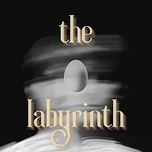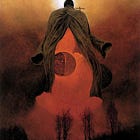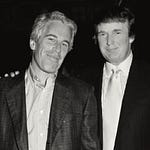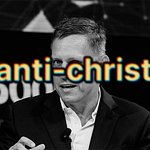Some excerpts…
"We pull from the external world to formulate our own narratives, yet they're never truly our own."
"Narratives become our masks, and over time, we become consumed by them."
"In the vast digital landscape, we're both the authors and the characters of our stories, constantly shaping and being shaped."
"The uncertain interplay with the external world continuously evolves us, forcing us to navigate and find our place anew."
"Stories, myths, narratives—they act as symbols that drive us, resonating deeply within our core."
"Even the move towards authenticity online is still a curated image, a symbol of something else."
"Narratives are more than stories; they're the blueprints of our existence, shaping our perceptions and defining our identities."
"Despite our differences, narratives remind us we're all part of a larger story, intricately woven by shared experiences and aspirations."
"We imagine events in our lives as moments in a story, seeking meaning, repositioning ourselves within evolving narratives."
"In relationships, we see the interplay of influences, the pivot points in the web we build in tandem with another."
Longer Excerpts
Narratives shape our perception of information. Consider the conventional story we tell about Earth's history. We often frame it as a sequence of dominant species or dynasties taking their turns to rule the planet. This narrative suggests that Earth's history is marked by power shifts, with one dominant species succeeding another. It's why we're so captivated by extinction events. We see them as moments when an old ruler is dethroned and a new one rises.
For instance, we frequently discuss the asteroid that struck Earth 66 million years ago, leading to the extinction of the dinosaurs. This event is often framed as paving the way for the age of mammals, which eventually led to our current era dominated by humans. Now, we've built skyscrapers and can instantly connect with someone on the other side of the world through our earbuds.
However, this narrative of power shifts and dominance oversimplifies the intricate details of Earth's history. It strips away the nuance and complexity of what truly transpired. Viewing historical events merely as power transitions between dominant species is a distortion. This perspective is likely influenced by our human-centric view, where we see ourselves as the reigning dominant species and draw parallels between past extinctions and potential threats to our own supremacy.
We're constantly crafting narratives, not just individually but in conjunction with everything around us. This includes our interactions with ourselves, our loved ones, our communities, and even the media we consume. Your narrative isn't solely your own; it's an intricate webbed interaction with the world around you, an ongoing interplay that's inescapable.
This dynamic becomes especially evident in intimate relationships. Perhaps it's most palpable there, or maybe that's just my perception. When you're deeply connected with someone, you can clearly see how both of you influence and shape the story of your relationship.
Reflect on a time when you were, or perhaps still are, in love. We often view love not as a fleeting emotion, but as a profound force. When reminiscing about a current or past love, you might recall specific moments that held significant meaning within the broader narrative of your relationship. These moments can be turning points: realizing the depth of your love, recognizing a desire to spend your life with them, or understanding the uniqueness of your feelings for them. The list is endless.
Conversely, relationships also have their challenging moments. These pivotal instances, like intense disagreements or realizations that things might not work out, force us to reassess. They're turning points, moments that reshape the narrative web you're co-creating with another person.
A Hemmingway quote that I was reminded of thinking about this episode….
“You did not kill the fish only to keep alive and to sell for food, he thought. You killed him for pride and because you are a fisherman. You loved him when he was alive and you loved him after. If you love him, it is not a sin to kill him. Or is it more?”
― Ernest Hemingway, The Old Man and the Sea














